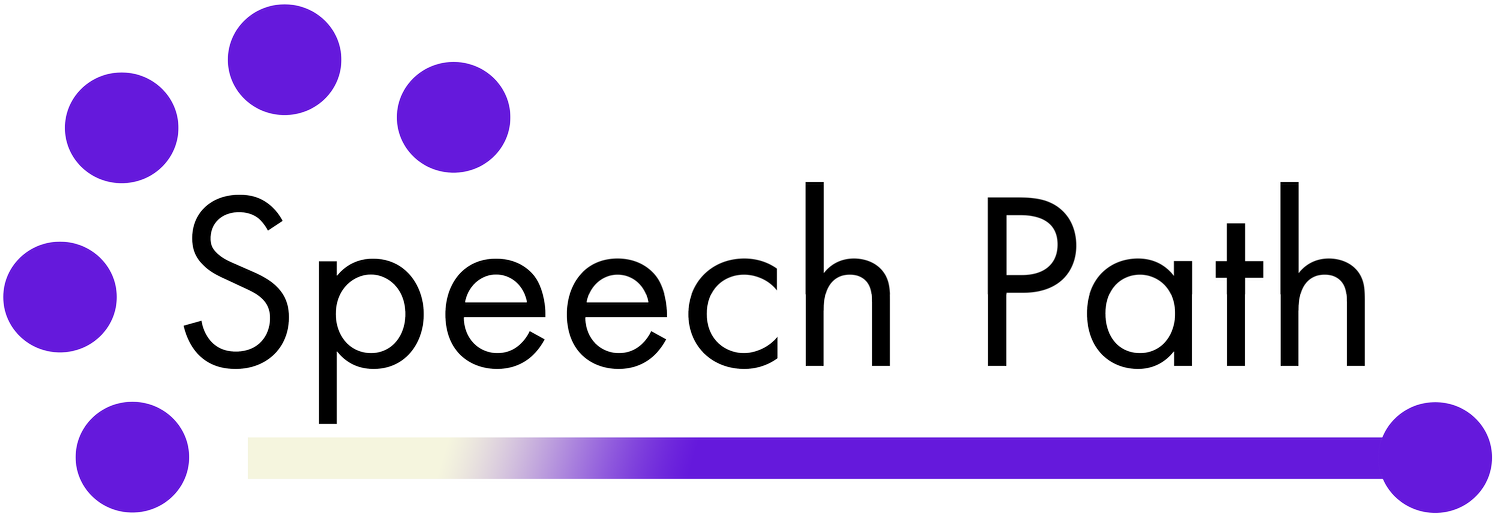Cognitive-Communication Therapy for Adults with Acquired Neurological Conditions
Communication is more than just speaking words. It involves memory, attention, problem-solving, and the ability to organize and share thoughts effectively. For adults with cognitive-communication differences due to acquired neurological conditions, these abilities can be significantly impacted. In this blog, we’ll explore what cognitive-communication therapy involves, who it benefits, and strategies speech-language pathologists (SLPs) use to support adults in improving their communication and cognitive function.
What is Cognitive-Communication Therapy?
Cognitive-communication therapy focuses on improving the cognitive processes that support communication. These include attention, memory, reasoning, problem-solving, and executive functioning. When these skills are disrupted by conditions such as stroke, brain tumors, traumatic brain injury (TBI), or neurodegenerative diseases (e.g., Alzheimer’s), a person’s ability to communicate clearly and effectively can be significantly impacted.
Speech-language pathologists tailor therapy to address these specific deficits, helping clients relearn skills and develop compensatory strategies, so they can optimize their communication in everyday life, improve their ability to connect with others, and regain independence.
Who Can Benefit from Cognitive-Communication Therapy?
Adults who experience cognitive-communication difficulties may include those who incurred or have:
Stroke: Stroke can impair attention, memory, or language (aphasia), making it challenging to follow conversations, recall important information, or articulate thoughts.
Traumatic Brain Injury (TBI): TBIs can affect processing speed, organization, and focus, leading to communication challenges in social and professional settings.
Neurodegenerative Conditions: Diseases like Alzheimer’s, Parkinson’s, or multiple sclerosis may cause gradual declines in cognitive and communication abilities.
Post-Concussion Syndrome: Even mild brain injuries can result in difficulty concentrating, organizing thoughts, and maintaining conversations.
Strategies to Support Cognitive-Communication Skills
Speech therapy for cognitive-communication disorders is individualized to meet the specific needs of each person. Here are five evidence-based strategies used in therapy:
1. Teach Compensatory Strategies for Memory
Memory challenges are common among adults with cognitive-communication differences. SLPs teach clients practical tools to improve recall and organization. The SLP may work with the client to establish external supports that can help reduce the cognitive load and enable individuals to focus on the task at hand.
Example: Using a memory notebook or phone reminders to keep track of appointments, conversations, or tasks.
2. Develop Attention-Enhancing Techniques
Improving attention is often a focus for adults with TBI or stroke, as difficulties in staying focused can disrupt communication. Strengthening attention helps individuals better follow conversations, instructions, and social cues.
Example: Practicing mindfulness or "chunking" tasks into smaller steps during therapy to improve sustained attention.
3. Practice Social Communication Skills
Many adults with cognitive-communication challenges struggle with social aspects of communication, such as conversational turn-taking, interpreting nonverbal cues, or staying on topic. Targeting these skills in speech therapy helps provide real-world practice and can boost confidence in social interactions.
Example: Role-playing conversations or practicing active listening during therapy sessions.
4. Use Visual Supports and Graphic Organizers
Visual aids can help individuals process and organize information more effectively. They are especially helpful for individuals who have a hard time processing spoken language.
Example: Using mind maps to plan a presentation or graphic organizers to break down complex ideas.
5. Develop Problem-Solving and Executive Function Skills
Cognitive-communication therapy often includes problem-solving exercises to rebuild executive functioning. Enhancing problem-solving abilities translates to improved independence and effective communication in real-life situations.
Example: Practicing how to plan a grocery shopping trip or troubleshooting potential obstacles in daily activities.
How Cognitive-Communication Therapy Changes Lives
The goal of therapy is not just to rebuild communication skills but to empower individuals to participate fully in their personal, professional, and social lives. For some individuals, cognitive-communication therapy can help them regain the confidence to communicate with loved ones or re-enter the workplace. For others, cognitive-communication therapy can help provide tools to manage frustration and adapt to new cognitive challenges. For adults with neurodegenerative conditions, speech therapy focuses on maximizing abilities, providing compensatory strategies, and enhancing quality of life.
Take the Next Step Toward Better Communication
Cognitive-communication therapy is a powerful tool to help adults rebuild skills impacted by neurological conditions. If you are looking for speech therapy in San Francisco for yourself or a loved one, The Speech Path in San Francisco can help. We are a group of highly-skilled speech therapists and understand that each individual is unique. For each communication challenge, we offer personalized care to ensure effective results. Our team of dedicated and experienced speech therapists is committed to tailoring evidence-based interventions to meet the specific needs of you or your loved one.
We offer speech therapy for adults, pediatric speech therapy in San Francisco, virtual speech therapy for adults and children throughout California, as well as specialized programs such as the Hanen It Takes Two to Talk Program, PEERS® social skills groups, parent consultations and assessments for childhood apraxia of speech, and play groups.
Whether the issue is a cognitive-communication difference, articulation disorder, language delay, or any other communication concern, we employ a holistic approach to foster progress and build confidence. We ensure that every session is a positive step towards improved communication skills. Contact us today to get started on the journey to enhanced communication and a brighter, more connected future.
